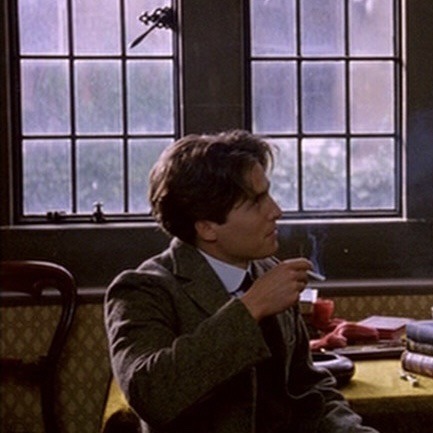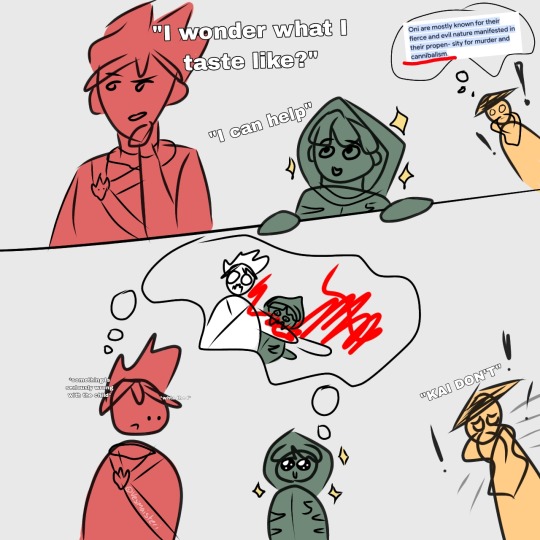#English law
Photo

A manicule, but make it a unicorn. A unicornicule?
This wonderful little surprise appeared in the margins of a 1505 book of English canon law.
#unicorn#marginalia#margin mondays#annotation#16th century#English law#legal history#canon law#latin#rare books#old books#riesenfeld center#umn law#university of minnesota#law library
3K notes
·
View notes
Text


An original Magna Carta from 1215 - on display in Salisbury Cathedral
#Magna Carta#KIng John#Charter of Rights#1215#barons#English law#monarchy#original copy#Salisbury Cathedral#UK
28 notes
·
View notes
Text
The last witch to be sentenced under English law, Helen Duncan, was a fraudulent psychic, pretending to give people messages from the dead and producing 'ectoplasm' – mostly cheesecloth.
"Normal Women: 900 Years of Making History" - Philippa Gregory
#book quotes#normal women#philippa gregory#nonfiction#witch#english law#helen duncan#fraudulent#psychic#messages from the dead#ectoplasm#cheesecloth
0 notes
Text


They make me wanna rip apart cardboard with my bare teeth.
#one piece#donquixote doflamingo#donquixote rosinante#trafalgar law#i'm trying to find a good middle ground with my rendering so it doesn't feel too uncanny valley#Also i'm bad at grammar and i'm not english so if the ALT text is weirdly worded let me know!
2K notes
·
View notes
Text
Question for any legal types that know UK agricultural law:
I have an allotment. Well. I’m on the committee for a UK cooperative allotment society. Our landlords are being dicks and have decided they want to kick the Society off the land, appoint their own managers, and then get our plot holders back and charge them effectively double. The Society has been there in one form or another since the 1800s so this pisses us all off.
Our copy of the lease has mysteriously gone missing while in the care of the previous secretary, who also happened to be on our landlords board of directors, at the same time as the landlords lost their copy. All very coincidental I’m sure. As is the fact this only came to light when said secretary was removed from his post by the membership on the charge of not acting in the interest of the Society.
After some back and forth, the generally agreed position is this:
- the ‘original’ lease is from the 1950s
- the 1950s lease has been extended in 5 / 2 / 1 year chunks until 1991
- The 1991 extension lapsed in 1996 when a verbal agreement was made to extend it on a rolling basis
So. Would our current tenancy be under the Agricultural Holdings Act 1986, because the original lease / lease extension was signed before 1 September 1995? Or would we be a farm business tenancy (FBT) under the Agricultural Tenancies Act 1995?
Our landlords want to say - oops no lease let’s make a new one. I’m wondering if this is a way around the extra tenure based protections we would get under the 1986 act… Help?
0 notes
Text
imagine the picture of dorian gray (1891) but dorian is jude law in wilde (1997) and lord henry is hugh grant in maurice (1987)






#henry is slightly older than dorian so the age gap is accurate just imagine hugh older than he was in maudice#maurice#wilde 1997#jude law#hugh grant#the picture of dorian gray#oscar wilde#dorian gray#lord henry wotton#aesthetic#cinema#literature#english literature#fancast#film#books#dorian#adaptation#dark academia
1K notes
·
View notes
Text

( •̀ ω •́ )✧~ Interview time

#this is reference on interview with DK (this is one cute musicant)#one day I ll stop doing stupid funny things which anderstend only russians on english#but this is not this day#lawsan#law x sanji#sanlaw#sanji x law#one piece#one piece meme#kiss kill marry#sanji#trafalgar law#я одновременно хочу чтобы это увидел кто-то из русских и не хочу#но бля ло такой дк что я не могу#такой чисто убей не надо мне пощады#и развей мой прах с балкона с первого подхода#и всю ночь на нервяках беспокой по пустякам#теперь мне нужна ау с дебилом стримером музыкантом ло и няшей санджи который ведет свой блог для милых девочек
449 notes
·
View notes
Text
"You are the rock on which I stand,
Steady me, please take my hand,
Hold me now until the break of day."
— Charles Wiles.
Pirates don't help people, he used to spit. I was not born into this world to help anyone.
Yet, as the fabric of your shirt softly shifts up your skin making you shiver, Law finds himself unable to stop the hand raising his blanket, keeping you warm.
You're not just people, though, he poorly excuses himself. You're more than just anyone to him.
Which is why he pretends to not notice how clingy you get when the sun's barely peeking through the windows, warm and bright enough to make out the shape of your face, features he awkwardly traces with the tip of his fingers, finding himself needing the intimacy, this closeness with you.
He cherishes these slight pieces of yourself you only show him. Asleep, vulnerable and soft to the touch, trusting this callous man to keep your dreams safe, Law has to bite his tongue to hold himself from repeating the same three little words to you like a fool.
He chastises himself for even thinking about it.
And then you start to wake up, with bloated cheeks and messy hair, your eyes still fighting sleep, and God, it's useless, Law thinks. It's an urge too hard to resist– but he refuses to say it out loud. He's content with protecting you as it is, tightening his blanket around you and trying to fix your hair.
Will it be too much for you, he wonders, impatiently waiting for your eyes to fully open, if he physically gives you his heart to keep, to protect?
"Law?"
You shove your face further down his neck, eyes scrunching in a tender way that makes Law's hands clench and unclench with the need to touch.
He hums low on his chest in response, bringing your body closer to his. When you don't continue, eyes closing again, he grumbles out, "Morning."
He feels your smile on his neck, one sleepy kiss pressed against it. "Good morning, love."
It hurts.
Up to this day, Law's guilt clenches with a vice-like grip around his chest, reminding him how he doesn't deserve this warmth, this forgiveness you give him.
It's a hole his heart still aches to fill– this disgusting need for affection, a need he can't allow himself to ask for out loud, but one he desperately looks for anyways.
When you're out and about on a new island, linking pinkies and pressing your side against his, teasing him for his pink cheeks and burning glare.
Aflot in the Polar Bear, dragging his tired self up deck to get some much needed sun in his system, his palms tingling where your hands held him.
On nights he's blessed with your pleasure, where he's insatiable until he makes you his– unsatisfied until every part of you is marked with his name, his traces.
So when you pull him closer to you now, he doesn't say a word. He doesn't tease you like he would any other day, doesn't call you out on how your body seems to always gravitate towards his– today he's not sure if his good intentions would come clear enough, and what if one last remark is what pushes you to finally leave him for good?
Law instinctively holds you closer, letting your body soothe his restless mind. You're here. You're staying. You love him.
You hug him even tighter in your sleep, entwining your legs together, impossibly closer to eachother. He's usually not positive for anything, but you're for sure a gift from his loved ones up above, because only those who cared for him enough could guide you to him.
He has one final thought before dozing off again, as the tiny fluttering of your eyelashes on his skin and the slight rise from the waves of the New World lull him to sleep, carrying so much fondness he doesn't even put up a fight when his eyes start to drop.
His heart is staying right where it belongs.
#trafalgar law x reader#law x reader#trafalgar law fluff#one piece scenarios#one piece fluff#one piece x reader#trafalgar law imagine#trafalgar law scenarios#im still not back yet. but kindly take these crumbs#this is cheesy and cavity inducing but im feeling soft for this boy#also been in my drafts for way too long it was either posting it as it is or delete its existance. existence?#english hard TT#also a lil bit. just a bit#of#law angst#would probably edit later!#law fluff
625 notes
·
View notes
Text
👑🩰MOVIE THERAPY👑🩰

-In this post, I want to mention the lessons I learnt from two beautiful movies - Queen and English Vinglish. I HIGHLY RECOMMEND these movies!!!! Both the movies start with women who are timid , stuck in their past , trying to please others , lack self love , dependent on others but in the end they become independent, confident and develop self love. Isn't that wonderful ?
Let's start from Queen movie starring Kangana Ranaut, Rajkumar Rao and Lisa Haydon. It's about a girl named Rani who was dumped by her fiance and she decides to go on honeymoon, all by herself

1) If they leave you, it's not the end of the world.
Rani's fiance dumped her just before the wedding, ofc she was heartbroken and locked herself in room . After that she decided to go to honeymoon, all by herself! She went to the same place where she was supposed to go after her marriage - Amsterdam , Paris . I know it hurts , when a close one , whether it's your fiance , boyfriend, girlfriend , best friend etc leaves your side with/without any reason. As once a wise women said , you lose people who aren't meant for the best version of you . Even if they leave, you have to enjoy your own company and continue with your own life . Vijay aka Rani's fiance cancelling the wedding was a blessing in disguise . Also if they left without any reason or if they were just embarrassed by you , they didn't deserve you at all .
2) YOU ARE COMPLETE ON YOUR OWN
Yes , here is a spoiler from the movie , Rani doesn't end up with any new guy or gets married to her ex fiance. Infact , she becomes independent and free. You are whole on your own. You are complete on your own , you don't need anyone to complete you. You are a queen/king and will always remain one ! You can be happy on your own. You don't need anyone or their approval.
3) Have fun with friends , don't judge each other
Rani met VijayLaxmi , Olexander or ( Sikander🐵) , Taka and time. Their friendship was perfect example of "opposites attract " . However , despite the differences, she never judged them because she knew they were good human beings , deep inside .
4) A make over is never a bad idea !
A makeover can make you feel confident in yourself. The way you present and take care of yourself also shows how much you love and respect yourself. So wear a pretty pink dress and straight your hair or maybe curl them , whatever you like ! Also REMEMBER YOU ARE DOING IT FOR YOUUU!!!!!!!🧁💖
5) Step outside of your comfort zone
Why?? You don't grow in your comfort zone. Rani stepped out of her native country and tralleveled all alone to a country where she was supposed to go with her ex fiance. Remember Great things never come from comfort zone.
6) Free yourself
Be independent. Love yourself. Respect yourself. There is a scene in the movie where Rani rejects her fiance when he comes back while they play a beautiful and meaningful song in background . That scene represents Rani's walk of liberation. Rani finally became independent, learnt to love herself and be her own person !!
7) " Thank you " - Rani, Queen 2013
Rani thanks her fiance when he comes back to her. No, she doesn't take him back . She finally realized that if he didn't cancel the marriage, she would have never become her highest self which was confident , full of self love and independent. It was truly a blessing in disguise. Say thank you to all those hurtful past experiences, those experiences made you wiser. Say thank you to all the people who left you at your worst because they made you realize that you only need one person and that's YOU !

Lessons learnt from English vinglish , starring Sridevi . It's about a woman named Shashi who didn't receive any respect from her family peers for not knowing English. She was also timid and often mistreated by her daughter and not appreciated enough by her own husband.

1) Step out of your comfort zone
Shashi went to New York inorder to attend her sister's wedding but she couldn't speak or understand English. She went to a country where she didn't know how to communicate with anyone. You must get comfortable with the uncomfortable.
2) Turn your weakness into strength
Shashi was mocked by her own family for not knowing English. She took English classes and learnt English. She was committed and determined to learn English so she succeeded . She gave a meaningful speech in English too which shocked her daughter and her husband whereas some people were proud of her - her little son , her other cousin Radha , her English teacher and class peers. Later , her family also felt bad for mistreating like and they developed respect for her . Also please respect your parents , don't humiliate them for not knowing something or anything. The scene where Shashi cried because her daughter disrespected her were so painful to watch .
3) Don't allow others to degrade your hobbies / Job
Shashi was never appreciated for her being good at making sweets and her buisness was going pretty well but she never got the appreciation she deserved and was degraded by her own husband for being called " entrepreneur ". If you like something and if it is beneficial to you too , then don't care what others are saying , even if it's someone from your family.
3) Self love
Shashi summarized it in few words which hit hard so I will just end this post with her quote
" When you don't like yourself, you tend to dislike everything associated with you . New things seem to be more attractive , but once you start loving yourself , the same old life begins to feel new and good "
-Shashi , English Vinglish , 2012

#queen#english vinglish#feminist movies tbh#law of assumption#positivity#self love#self worth#respect yourself#wonyoungism#self help#it girl mentality#must watch movies#girlboss#girlblogger#self concept#loa#master manifestor#it girl#believe in your own magic#neville goddard#bollywood#bollywoodedit#bollygifs#affirmations#assume and persist#self esteem#self improvement#affirm and persist#persistence#self concept icons
171 notes
·
View notes
Text
So... Spreen and Missa were brothers. That's a thing.
And Fit married Spreen, and Spreen died before the divorce paperwork was signed or they reached long enough for it not to need Spreen's signature, so Fit is Spreen's widower. (Much sexier than divorcee, let's face it, even if he prefers divorcee - which he legally isn't - because it sounds like he had a choice in the matter or something there's something to unpack there I'm sure)
And so Fit is Missa's brother-in-law. And Missa is Fit's brother-in-law.
And Philza is Missa's (platonic, government assigned [*stares at them and shakes my head*]) husband.
And so Philza was Spreen's brother-in-law. And Spreen was Philza's brother-in-law.
Which!
Means Philza and Fit are /also/ brothers-in-law.
But that's besides the point, because Fit (and Spreen) are Ramon's parents, and Missa and Philza are Chayanne and Tallulah (and Wilbur?)'s parents.
Which means Fit (and Spreen) are Chayanne and Tallulah (and Wilbur?)'s uncle(s), and Philza and Missa are Ramon's uncles.
This all means...
Ramon is Chayanne and Tallulah (and Wilbur?)'s cousin.
And I don't know where I'm going with this, but it's definitely something.
#qsmp#qsmp fit#qsmp spreen#qsmp missa#qsmp philza#qsmp chayanne#qsmp ramon#qsmp tallulah#wilbur gets question marks because it pleases me#there was an extra bit with theoreticals on if Pac marries in#but I'll stick to just has actually happened for now#reference#for my sake#also roier is spreen's ex iirc and also richas' dad via cellbit which makes a weird circle if pac and fit get married too#*waves about* I am using English as its used in the place I grew up milage may vary with other places#whether that's other English speaking places or if a translation is needed#words sometimes mean different things culturally#etc etc etc#especially with in laws and deaths
207 notes
·
View notes
Text





Seraphim Rosi experiencing an emotional whiplash because emotional dumpsterfire Law doesn't know what to do.
People commenting about the emotional damage they took from the first part motivated me to draw another one.
Part 1
Part 3
#one piece#one piece fanart#Seraphim!Rosinante AU#trafalgar law#trafalgar d water law#seraphim#S-Flamingo#pacifista#donquixote rocinante#donquixote rosinante#does anyone have an idea where Law lived on Punk Hazard?#If I do another part I might skip that tho#Skip directly to the Strawhats and the alliance#please forgive me if something sounds wierd english is not my first language
676 notes
·
View notes
Photo

Another entry for our “dragons and unicorns” week: Two unicorns hold up a crest decorated with two more little unicorns, again from Constitutiones provinciales ecclesiae Anglicanae.
The caption reads: Fortuna opes aufferre non animu potest.
#woodcut#unicorn#unicorns#crest#heraldry#latin#rubricated text#gothic type#16th century#fleur-de-lis#armor#canon law#english law#legal history#old books#rare books#riesenfeld center#magical creatures#umn law#law library
244 notes
·
View notes
Text

"Especially Heinous: 272 Views of Law & Order SVU" is available to read here
#novella#novellas#especially heinous: 272 views of law & order svu#carmen maria machado#21st century literature#english language literature#american literature#cuban american literature#cuban literature#latino american literature#have you read this short fiction?#book polls#completed polls
102 notes
·
View notes
Text


Ninjago but it's Wu getting grayer hair because Lloyd is a supernatural 9y prat (like father like son <3)
#Lloyd's so cool demigod that he can lean into comic frames like the little gremlin he is#Or he can beef with the laws of physics and everything else cause hes a nepo baby#Or hes just that much a force of nature in his 9y wanna be evil era#Actually all three options are one and the same but I want to give an illusion if choice#I wish we had more punk prat Lloyd era#He was great#Ninjago#Lego ninjago#Lloyd garmadon#Kai smith#Master wu#Lord garmadon#Ninjago meme#I had a greater wording in mind for Garmadon but I forgot how english do english lol
141 notes
·
View notes
Text
"Torao... Is Kidd your boyfriend?"
Law looked at him, surprised.
"What? No, we're not dating. We never dated, we just messed around."
Luffy looked down at his hands. He was glad Torao and Kidd weren't boyfriends but, what meant "messing around"? It didn't sound like making a mess, that was something he already knew.
#fanfiction#ao3#drafts#one piece#trafalgar law#monkey d luffy#eustass kid#lawlu#kidlaw#english is not my first language
87 notes
·
View notes
Text
Why Mr. Rochester and Bertha Mason Couldn't Get a Legal Separation; or, the Utter Madness of Marital Laws
So I saw a Jane Eyre post discussing why Mr. Rochester and Bertha Mason couldn't get a legal marital separation. I've thought a lot about this topic, and in order to procrastinate writing the final for my upper-level Brontë class, I've decided to write this sort of convoluted analysis instead. I know many others have written about this subject, but I wanted to explore a bit further on my own.
Preliminary context about me, the Brontës, their Byronic inspiration, etc.: I've learned a lot about 19th century British marriage laws recently in my classes on old British literature, as well as by having studied Byron, whose marital separation in 1816 was a notorious part of his history & also reverberated through 19c literature. He refers to this separation in many of his works, most famously in his notorious poem "Fare Thee Well." Harriet Beecher Stowe, the most famous American female writer at the time, was friends with Lady Byron and wrote a book defending her called "Lady Byron Vindicated: A history of the Byron controversy from its beginning in 1816 to the present time" (the original callout post).
Insanity accusations did factor in to Byron's separation. Many scholars have remarked how the Queens of Byronic Criticism, the Brontë sisters, took significant inspiration from their well-worn copy of Moore's biography Life of Byron when creating their works. The Brontës would have been very familiar with marriage laws not only due to their knowledge of Byron's trainwreck of a marriage, but also due to being well-educated women at the time who knew that marriage was the most important economic decision of one's life and could very well make or break a person. As a result, marriage plays a significant role in their novels.
More relevant preliminary context about the novel: Jane Eyre actually takes place in the Georgian era, despite most adaptations and anaysis presenting is as a Victorian piece due to the novels publication date (this drives me crazy; same goes for the other Brontë books). Marriage laws did not change drastically from the time the novel is set to the time Brontë was writing the novel, but things were a bit different socially. Rochester was also married 15 years before his attempt to marry Jane. According to this very good analysis, Rochester and Bertha probably married in or around the year 1793: https://jane-eyre.guidesite.co.uk/timeline.
Now, here are the reasons why Rochester couldn't separate from Bertha:
1) Insanity wasn't grounds for divorce/separation in the Regency era.
Rochester himself says that he couldn't legally separate from her because of her insanity, which presumably rendered any of her faults null on the grounds of that marital vow "in sickness and in health." This is possibly one of his biggest reasons:
"I was rich enough now – yet poor to hideous indigence: a nature the most gross, impure, depraved I ever saw, was associated with mine, and called by the law and by society a part of me. And I could not rid myself of it by any legal procedings: for the doctors now discovered that my wife was mad — her excesses had prematurely developed the germs of insanity [..]"
2) Divorce was nearly impossible anyway.
There had only been around 300 divorces in English history at the time. Almost all of them were husbands divorcing their wives for committing adultery. Only a handful of divorces had succesfully been obtained by women, and they were only in cases where the husband had committed incestuous adultery or bigamy, and was extremely physically cruel. So technically after his bigamy attempt, Bertha may have had more grounds to obtain a divorce than Rochester would have, if only she were lucid enough to do so. However, in that scenario infertility would have helped their case, and Adèle's existence would have harmed their case if he attempted to seek a divorce before marrying Jane. Though as the novel explains, Adèle is probably not his, she definitely would have been used against him, as would the fact that he kept Bertha's existence a secret in England. But he wouldn't have tried for divorce that late in the game anyway, considering it was one of the most difficult options.
3) Female adultery was your best bet at divorce or separation, and this probably wasn't applicable to Mr. & Mrs. Rochester.
Although some scholars claim that there is subtext hinting that Bertha was adulterous (which some adaptations, like the 2006, include), you needed substantial proof of the adultery, which Rochester may not have had if it did occur. Being a proud man, he also wouldn't have wanted to be humiliated in that way by letting it be publicly known (as shame is one of his main reasons for hiding their marriage to begin with).
However, I lean toward the idea that Bertha may not have committed adultery. If she definitively did, seeing how affected Rochester was by Céline cheating on him (he shot her lover in revenge and left her with a stipend), if he ever suspected adultery on Bertha's part then I'm sure he would have been at court the very next day. I also think Rochester tries not to be too much of a hypocrite, and he is well aware that he himself is an adulterer, so he probably doesn't want to accuse Bertha of a crime he's committed and which he couldn't definitively prove she did.
Rochester does talk about hating Bertha's "vices" when they lived together, citing drinking, arguing, cruelty to servants, cursing, her being "unchaste," a "harlot," etc. - the last epithets, combined with her supposed lack of morality, and her being described as seductive, heavily imply that adultery could be added to her list of offenses. However, if she did truly cheat on him as well, I don't see why he wouldn't plainly tell this to Jane as well. I would imagine it would be his first complaint, and it would probably be considered his most justifiable reason against her by their cultural standards.
I don't see why he wouldn't jump to take Bertha's infidelity as an opportunity to defend his own actions, considering how open he is with Jane about his own adultery and being cheated on by Cèline Varens. While I can see how some of the textual evidence may strongly suggest Bertha's adultery, we cannot be fully certain, and that may be because Rochester himself is not fully certain. I cannot see why he wouldn't have sought legal advice on that account alone.
In short, if Bertha was an adulterer, there must have been no evidence to convict her.
Also: while the double-standard may seem odd and trivial to us, the reason why female adultery held more weight than male adultery has entirely to due with old patriarchal inheritance laws; i.e the risk of a wife getting extramaritally pregnant and passing the illegitimate child off as her husband's heir was considered too great of an affront. A man could have as many bastards as he wanted because he would know they were bastards and were not at risk of inheriting his stuff. One needed legitimate heirs to justify passing on one's ancestral wealth to. Essentially, marriage was a mere economic tool, and the economy was and is inherently patriarchal. I digress.
4) Rochester's lack of social & economic leverage, and risk of social ruin in general.
Only the wealthiest of the wealthy could obtain divorce or official separation, and it often led to social ruin. Rochester is rich, but he has no title and no great network of supporters due to being a younger son and having been abroad for most of the past 15 years (this was the length of his marriage to Bertha, stated by Mr. Briggs during the bigamous wedding attempt). He doesn't have as much leverage as Lord and Lady Byron had.
To continue on official separation, like Lady and Lord Byron obtained. Just like divorce, this was also a messy and scandalous legal proceeding, and required numerous good reasons to obtain, and being well-connected Lords and Ladies really helped your case. You also needed many witnesses and written statements as evidence. Bertha's family, as we see with Mason, would have been unhelpful to Rochester, and due to his shame and secrecy, no one could really testify on his behalf I'm assuming.
5) Unofficial separation would have been inconvenient, especially in regards to living situations.
Aside from divorce, which was extremely rare, extremely controversial, and only for the wealthiest members of society — there were unofficial and official separations. An unofficial separation was simply living apart from one another. I've often wondered why Rochester didn't simply move Grace Poole and Bertha somewhere else, but my main theory is that it would have been cost ineffective, and due to his family who were implied to be shitty, he probably really didn't want to live at Thornfield anyway so thought it would be convenient to place her there. Rochester says it would be dangerous to place her in his other residence of Ferndean:
"[..] though I possess an old house, Ferndean Manor, even more retired and hidden than this, where I could have lodged her safely enough, had not a scruple about the unhealthiness of the situation, in the heart of a wood, made my conscience recoil from the arrangement. Probably those damp walls would soon have eased me of her charge: but to each villain his own vice; and mine is not a tendency to indirect assassination, even of what I most hate."
6) Annulment was likely impossible given their circumstances.
Annulment means evaporating the marriage, acting as if it never existed, that it was a mistake. This was rare and only granted in unique circumstances, and I believe it was more common with aristocracy and royals. I believe you could possibly get an annulment if you could prove that the spouse was insane at the time of the wedding and you did not know. However, Bertha did not begin to truly deteriorate until after they had been living together for a bit. And while Rochester says that he did not know her mother was in an asylum until after the wedding, having an insane mother doesn't mean that you are insane, which Bertha clearly wasn't at that point, at least not in a way that people would have publicly acknowledged, since Rochester says she attended parties and her hand was highly sought after.
Generally, the longer a marriage had gone on, the harder it was to prove why it could not go on. Rochester says that he and Bertha "lived together" for "four years" in Jamaica while her condition deteriorated and he tried to make things work. And again, after the wedding he found out her mother was "mad, and shut up in a lunatic asylum." So we have more reasons for Rochester's difficulty: the fear of Bertha going to an asylum while she was still mostly lucid in those first four years, combined with the fact that they openly lived together and certainly must have consummated their marriage (things which would further prevent annulment), and were certainly publicly recognized as a couple in Spanish Town society, and her family wanting the marriage to continue so she could have children of "good race" i.e. to produce heirs.
Here's an important passage that to me suggests that Rochester and Bertha not only had an initial flirtation but likely consummated their marriage, likely had a passionate sexual relationship for some time, and likely implies his feelings for her were more complex than we'd initially assume, making annulment not so clear-cut of an option to him at the time:
"My father said nothing about her money; but he told me Miss Mason was the boast of Spanish Town for her beauty: and this was no lie. I found her a fine woman, in the style of Blanche Ingram; tall, dark, and majestic. Her family wished to secure me because I was of a good race; and so did she. They showed her to me in parties, splendidly dressed. I seldom saw her alone, and had very little private conversation with her. She flattered me, and lavishly displayed for my pleasure her charms and accomplishments. All the men in her circle seemed to admire her and envy me. I was dazzled, stimulated: my senses were excited; and being ignorant, raw, and inexperienced, I thought I loved her. There is no folly so besotted that the idiotic rivalries of society, the prurience, the rashness, the blindness of youth, will not hurry a man to its commission. Her relatives encouraged me; competitors piqued me; she allured me: a marriage was achieved almost before I knew where I was. Oh, I have no respect for myself when I think of that act! — an agony of inward contempt masters me. I never loved, I never esteemed, I did not even know her."
7) Spousal abandonment wasn't possible, and on some level he honored his legal and financial obligations to her and the Mason family.
Bertha's family likely refused to house her for legal and personal reasons, and spousal abandonment was forbidden due to the husband's financial responsibility as well as the law of coverture (a wife became her husband's full legal responsibility; some say "property"). Like we see in Anne's Tenant of Wildfell Hall, if a woman ran away from their spouse they would have to live in obscurity and be at risk of being sussed out. You couldn't just abandon your partner. Still, people did, because it was the easiest route to take.
But the more upper-class you were, and the more financial entanglements you had, the more inconvenient this was. We know that Rochester and his family became enmeshed with the Mason family, and he got a lot of money from Bertha, so her father likely would have taken him to court. At any rate, Rochester was legally bound to bring Bertha with him to England when he left Jamaica. If he attempted to abandon her in Jamaica, the backlash it would have brought would have brought him social ruin and foiled his chances at getting away with any bigamy attempts.
All this brings us to a further notice of Bertha's family situation. Based on Charlotte Brontë's positive comments about Rochester's character (https://www.tumblr.com/burningvelvet/731403104856195072/in-a-letter-to-w-s-williams-14-august-1848) I see no reason to suspect him, like many feminist critics do, of being an unreliable narrator or of lying about Bertha Mason's history. Everyone is entitled to their opinions, and in mine, that is simply not the novel Charlotte wrote. By her own admission, she wanted his narrative to be a path to further goodness.
It makes no narrative sense for our explanation of his and Bertha's history to be full of lies when he's trying to make ammends with Jane, who never suspects him of lying during his admission, but who does critique him and figure he'd tire of her like she was one of his many mistresses. Jane wonders if Rochester would lock her in an attic too, which he refutes on the basis that he loves her more than he loved Bertha when she was sane, and so he would care for Jane himself. Jane also tells him that it's not Bertha's fault that she's mad. So in my opinion, if Charlotte wanted us to believe Rochester was lying about his and Bertha's history to make himself look better or Bertha look worse, I don't see why she would have been vague about it, and I don't see why Jane wouldn't have called it out like she does everything else. I don't think Rochester is really a villain who locked his harmless wife in the attic for giggles; I think he weighed most of his options and found, like most people back then and even today, that keeping his problems locked up and ignored was the best solution.
Now, on with the point. I have often wondered why Rochester didn't simply "unofficially separate" from Bertha by leaving her with her family when he left. Why did he take her to England? Why didn't he just run away? It wasn't because he was an evil villain who wanted to keep her as a trophy. It's because 1) I don't think her father would have let him, as he was so quick to marry her off, 2) he felt obligated to her, and 3) it was criminal for men to abandon their wives, and it would have attracted publicity, which is what Rochester was avoiding by taking Bertha to England and sheltering her in secrecy.
Many claim that Rochester's adultery is a betrayal of his wife; and while religiously, narratively, socially, we can accept this statement, it was not legally a crime. While Rochester does honor his financial and legal obligations to his wife and her family, he does not take the religious part of the vows into account, and that's why he's cosmically punished and only rewarded after he repents, as he explains toward the end of the novel.
Another interesting point is that when Rochester recounts his decision to move back to England, he tells us that Bertha had already been declared insane in Jamaica and that she was already confined there (presumably around the 4 year anniversary before they left), meaning her father probably knew about confinement:
"One night I had been awakened by her yells (since the medical men had pronounced her mad, she had of course been shut up) — it was a fiery West Indian night; [..]"
Locking away "insane" people was standard procedure then, and if this was done with Bertha's father's knowledge, considering he locked his own wife away in an asylum, then this further absolves Rochester of a lot of the blame in my opinion. It more than likely wasn't his idea to lock her away, but the advice of "the medical men" and presumably her father's consultation as well.
8) Even if he divorced or separated from her, he couldn't remarry. Attempting these, or getting caught attempting abandonment, would have brought negative publicity that would have likely prevented the success of any future bigamy attempts. To him, secrecy and bigamy seemed better chances at securing happiness than the social ruin and likely failure the other options would have brought him.
Aside from Rochester's own explanation (which I supplied in #2 re: the separation veto inherent to Bertha's insanity), the other biggest reason as to why Rochester wouldn't seek a separation/divorce even if she hadn't been declared insane and even if he were willing to accuse her of adultery truthfully or not, is due to the fact that one could not legally remarry upon separation or divorce (unless you were Henry VIII and got God's permission lol). Rochester's impossible dream is that he wants to be married to someone he really loves, and if secrecy and bigamy are his only options then he is willing to succumb; this is shown in numerous passages:
"[..] I could reform — I have strength yet for that — if— but where is the use of thinking of it, hampered, burdened, cursed as I am? Besides, since happiness is irrevocably denied me, I have a right to get pleasure out of life: and I will get it, cost what it may."
"I will keep my word: I will break obstacles to happiness, to goodness — yes, goodness; I wish to be a better man than I have been; than I am — as Job's leviathan broke the spear, the dart, and the habergeon, hinderances which others count as iron and brass, I will esteem but straw and rotten wood."
"Is there not love in my heart, and constancy in my resolves? It will expiate at God's tribunal. I know my Maker sanctions what I do. For the world's judgment — I wash my hands thereof. For man's opinion — I defy it."
Closing remarks on the above's validity: I can't cite all my sources because a lot of this stuff I learned from lectures via my professor who specializes in 19th century English literature & history. But here's some recently published information from a historian, taken from "Inside the World of Bridgerton: True Stories of Regency High Society" by Catherine Curzon (2023):
"And if you were one of the newly-weds, you really did hope things would work out, because in the Regency till death do us part wasn't just an expression. As the Prince Regent himself had learned when he separated from his wife within eighteen months of their marriage, obtaining a divorce in Regency England was no easy matter. He never achieved it, and for those who did the stakes could be high and the cost ruinous in every sense."
"Until the passing of the Matrimonial Causes Act of 1857, which legalized divorce in the civil courts, it was governed by the ecclesiastical courts, and the Church didn't end a marriage without very, very good reason. Even these divorces didn't allow a couple to remarry, though, and they were more akin to what we would today call a legal separation, with no shared legal or financial responsibilities going forward. It was freedom, but only to a point."
"The only way to obtain a complete dissolution that allowed for remarriage was to secure a parliamentary divorce, and these were notoriously difficult to obtain. They began with a criminal conversation case, because they relied on adultery by one of the parties to make them even a slight possibility. If a woman committed crim. con., her life in polite society was over."
#jane eyre#lord byron#charlotte brontë#charlotte bronte#byronicism#marriage#divorce#marriage laws#english history#english legal history#mr. rochester#bertha mason#mr rochester#analysis#literature#english literature#history#Inside the World of Bridgerton: True Stories of Regency High Society#regency era#georgian era#19th century#1800s#victorian#Catherine Curzon#interesting#essays#the bronte sisters#the brontes
279 notes
·
View notes